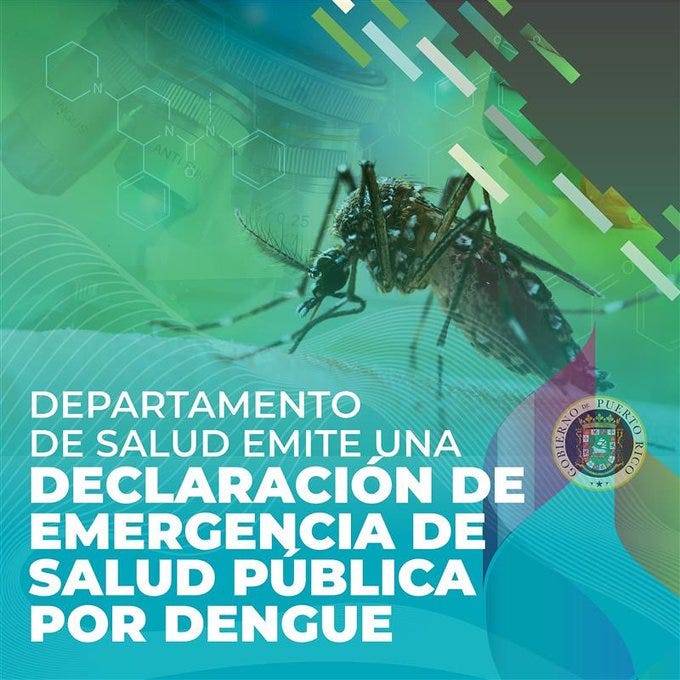Puerto Rico officials issue a declaration of public health emergency due to dengue
In response to the situation of spread of the dengue virus in Puerto Rico so far this year, the Secretary of the Department of Health, Carlos Mellado López, issued a declaration of public health emergency due to dengue.
With this action, he said, it will be possible to guarantee the necessary resources to strengthen surveillance, detection, prevention, vector control and clinical management, among other efforts, in order to address the spread of this disease with the promptness and efficiency that deserves.
“This year, dengue cases have exceeded historical figures. The teams have been working on the integrated plan for prevention and control in response to arbovirus and we are going to expand the implemented response. Is It is important to note that the increase in cases has not only been reflected in Puerto Rico, but we have seen it throughout the region of the Americas,” said Mellado Lopez.
The Administrative Order will take effect immediately and will extend for a period of 90 days.
For the Secretary, the increase in dengue cases requires that all components of society join forces in order to prevent contagion and the spread of this virus.
According to the Surveillance update, currently there have been registered 549 cases. The health region with the highest number of reported cases is the San Juan region with 270 cases (49.18%), followed by the Bayamón region with 75 cases (13.66%) and the Mayagüez region with 61 cases (11.11%).
Dr. Melissa Marzán emphasized that the Integrated Prevention and Prevention Plan Control of Arbovirals, available on the website of the Department of Health, offers a comprehensive perspective of the agency's response to the dengue, including the component of early detection, surveillance epidemiological, vector management and educational and communication among others.
Likewise, she highlighted the importance of collaboration community and the participation of municipalities." Municipal leaders have played a crucial role alongside the Department of Health, recognizing the impact that dengue has on populations. We are deeply grateful for your support and we urge you to empower your communities so that they carry out cleaning efforts around the home and thus eliminate mosquito breeding sites," the epidemiologist pointed out.
The Department's recommendation is to implement safety measures prevention that includes: eliminating mosquito breeding sites, inspecting thoroughly, scan your surroundings and get rid of any containers or areas where water can accumulate and become breeding grounds for mosquitoes.
This includes emptying containers of stagnant water such as flower pots, old tires, buckets and any other object that can accumulate water. Furthermore, it must prevent the bite of Aedes aegypti by using insect repellent that contain DEET, picaridin or other ingredients recommended by health authorities.
It is also essential to wear clothing that covers the exposed skin and consider installing mosquito nets on beds and wire mesh on doors and windows.
Finally, the Secretary of Health stressed that "it is essential to recognize the symptoms early, such as fever, headache, muscle pain, and joint pain, skin rashes and fatigue, as these could be indicative of dengue. In the presence of any of these symptoms, it is recommended to look for medical attention immediately."





